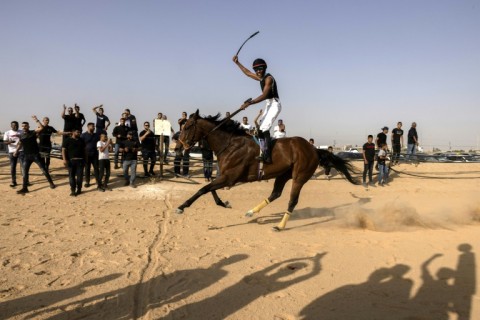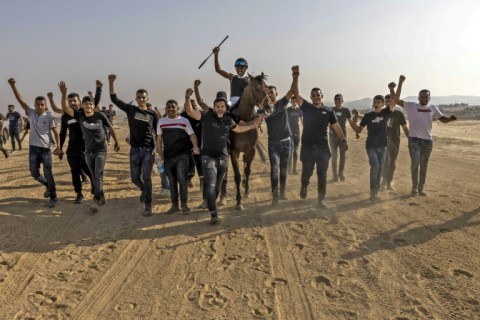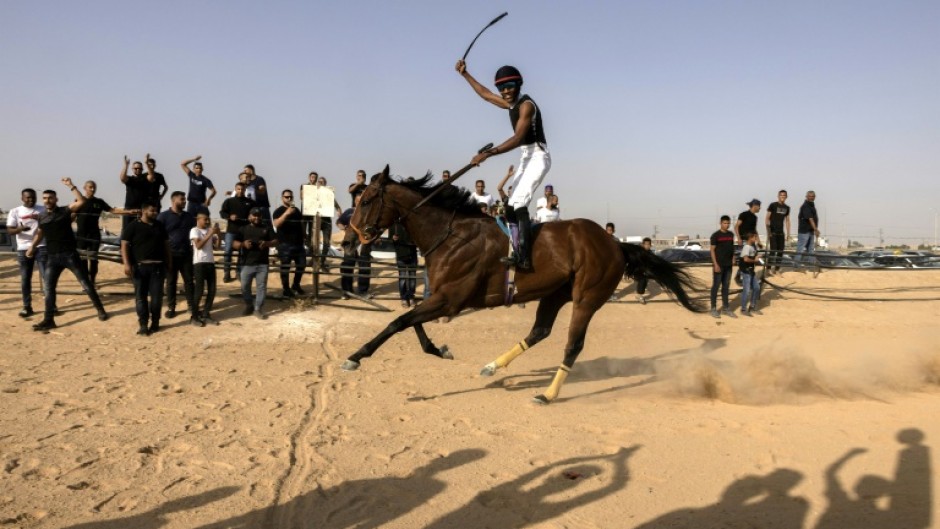
JERUSALEM - A stretch of dirt next to a desert highway in Israel's south may not immediately seem an ideal spot, but for years it has attracted Bedouins weekly to enjoy horse racing.
There is no grandstand or fence separating the spectators' area from the track -- just some plastic tubing tied to posts.
But the Bedouins who gather there at sunrise most Fridays told AFP it suits them just fine.
They have been meeting at the venue in the Negev desert region to share a hobby they describe as a central part of their nomadic heritage.
Horse racing and betting typically go hand-in-hand, but people at the Abu Tlul track refused to confirm reports that thousands of dollars are wagered, off site, each week.

- Social tensions -
There are more than 260,000 Bedouins in Israel, part of the country's Arab minority that accounts for roughly a fifth of its 9.3 million population.
A partly nomadic group that is becoming increasingly urbanised, Bedouins consistently rank as Israel's poorest group and, like other Arab people, complain of marginalisation and mistreatment by the government.
A long-standing source of friction is that many Bedouin villages are not recognised as official municipalities by Israel and lack basic utilities.
Tensions are also driven by accusations from some Jewish Israelis blaming Bedouins for a disproportionately high share of petty crime, particularly theft.
In a rare study of Bedouin leisure practices, researchers at the Ben-Gurion University of the Negev explored the impact shared social spaces could have on relations between the Jewish majority and minority groups.
The 2021 study -- focused on Bedouin use of an Israeli forest, not horse racing -- found that Bedouins had "positive feelings" towards Israel's Lahav Forest, even if the popular leisure area is managed by the Jewish-controlled state institutions.

